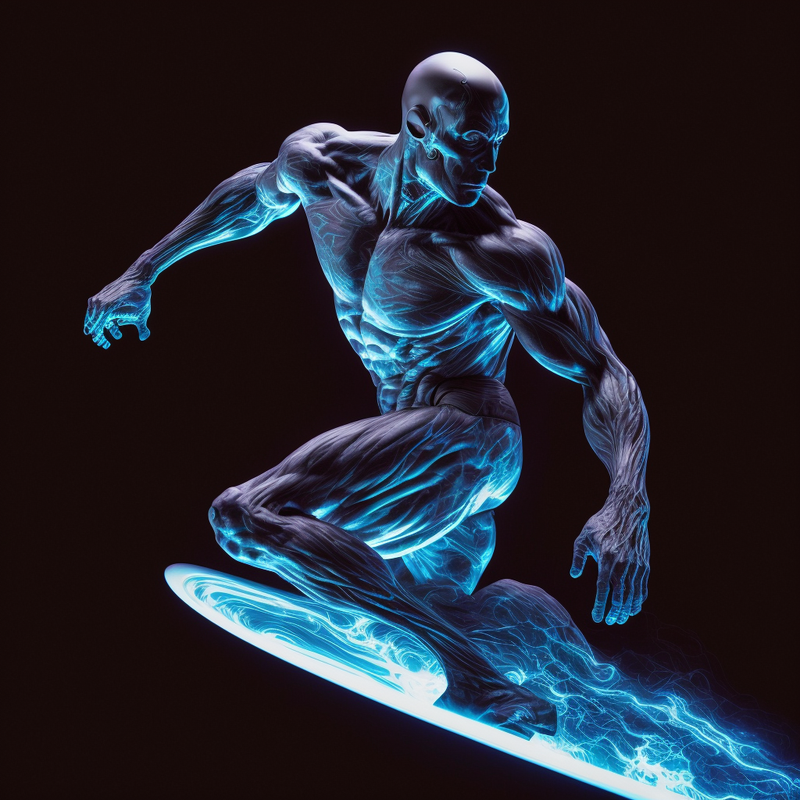Dear Eric,
I listen to a fuckton of Bitcoin podcasts and other audio content. It is rare now that while listening to something, I literally get up and cheer, or shout out loud with wild celebratory whoops or, conversely, with insane fury. Today, listening to your WBD interview, at the end of your Synopsis of the Melville story, “Bartleby the Scrivener,” a story I know very well. I actually teared up and then bellowed aloud like a barbarian. I resounded my yawp because I realized that Bitcoin is “the power of last refusal.”
For a time I worked for a publishing company in their subsidiary rights department and I have had some of my own writings published as well. In publishing, we have this concept, as I am sure you know, of “the right of first refusal.” It’s “a contractual right to enter into a business transaction with a person or company before anyone else can.” But Bitcoin is literally the power of last refusal. I never thought about it this way until you spoke about Bartleby. Note that I use the word “power” and not “right” when referring to Bitcoin, because this ability is intrinsic to its nature as property and how it can be managed by a person individually (as opposed to extrinsic).
Bartleby exercises his power of last refusal, in which he literally pledges, unto death, his unwillingness to participate in a world system that he has no truck with. We cannot know what Bartleby’s reasons are: he never tells us (another power!). But because he is a human being, he can choose to die instead of being forced to live under a set of rules that he does not accept. In this sense, the state, the world, the human community, cannot extract from him what it wishes. Bartleby’s conscientious objection constitutes the power of last refusal.
If I choose, upon my death, not to pass on my seed phrase to anyone, or give it up to the state, but instead choose to die with that cryptographically protected secret, I am exercising my power of last refusal. At the last, I force the state to accept my power as a self-realized “moral majority of one,” to bend Thoreau‘s phrase. In my final act, whether it wants to or not, the state has to recognize my self-sovereignty, and it cannot see me only as a unit of labor.
The existence of the power of last refusal opens up, as you say later in the interview, a whole new ethical framework. It means that my conscientious objection is not just an act of language or thought, but an act that tracks materially onto the real world.
Anyway, thanks for the big revelations. I’ll be buying your book today.
Warmly and in brotherhood,
Cosmo Crixter

CosmoCrixter
npub1dx…0vdqv
2023-11-02 11:45:05
in reply to nevent1q…g5ey
Author Public Key
npub1dxu6lr6yyzt3dtaplknmk96kn8p9g7c7jdklqjcft7rgnxyk700qt0vdqvPublished at
2023-11-02 11:45:05Event JSON
{
"id": "c6946bd39dc3447ac86649d532ebd709789c2f1942ca88717d5fe0bc26b62a61",
"pubkey": "69b9af8f44209716afa1fda7bb175699c2547b1e936df04b095f86899896f3de",
"created_at": 1698925505,
"kind": 1,
"tags": [
[
"e",
"e10d6ef4309070fac7ccb61ffc15dde2c0ba437b848b37f7215cc82cec589253"
],
[
"p",
"bd9eb657c25b4f6cda68871ce26259d1f9bc62420487e3224905b674a710a45a"
]
],
"content": "Dear Eric,\n\nI listen to a fuckton of Bitcoin podcasts and other audio content. It is rare now that while listening to something, I literally get up and cheer, or shout out loud with wild celebratory whoops or, conversely, with insane fury. Today, listening to your WBD interview, at the end of your Synopsis of the Melville story, “Bartleby the Scrivener,” a story I know very well. I actually teared up and then bellowed aloud like a barbarian. I resounded my yawp because I realized that Bitcoin is “the power of last refusal.”\n\nFor a time I worked for a publishing company in their subsidiary rights department and I have had some of my own writings published as well. In publishing, we have this concept, as I am sure you know, of “the right of first refusal.” It’s “a contractual right to enter into a business transaction with a person or company before anyone else can.” But Bitcoin is literally the power of last refusal. I never thought about it this way until you spoke about Bartleby. Note that I use the word “power” and not “right” when referring to Bitcoin, because this ability is intrinsic to its nature as property and how it can be managed by a person individually (as opposed to extrinsic).\n\nBartleby exercises his power of last refusal, in which he literally pledges, unto death, his unwillingness to participate in a world system that he has no truck with. We cannot know what Bartleby’s reasons are: he never tells us (another power!). But because he is a human being, he can choose to die instead of being forced to live under a set of rules that he does not accept. In this sense, the state, the world, the human community, cannot extract from him what it wishes. Bartleby’s conscientious objection constitutes the power of last refusal. \n\nIf I choose, upon my death, not to pass on my seed phrase to anyone, or give it up to the state, but instead choose to die with that cryptographically protected secret, I am exercising my power of last refusal. At the last, I force the state to accept my power as a self-realized “moral majority of one,” to bend Thoreau‘s phrase. In my final act, whether it wants to or not, the state has to recognize my self-sovereignty, and it cannot see me only as a unit of labor. \n\nThe existence of the power of last refusal opens up, as you say later in the interview, a whole new ethical framework. It means that my conscientious objection is not just an act of language or thought, but an act that tracks materially onto the real world. \n\nAnyway, thanks for the big revelations. I’ll be buying your book today.\n\nWarmly and in brotherhood,\nCosmo Crixter",
"sig": "335f1f571163e036c0857d6c9ea308c5e46d798a1e1be14dc7386ff9ec91eec3b0d883b5e1bf429e3f0d0dfcaf839cd01bcd5b7126ae55905dc591c04d29dead"
}